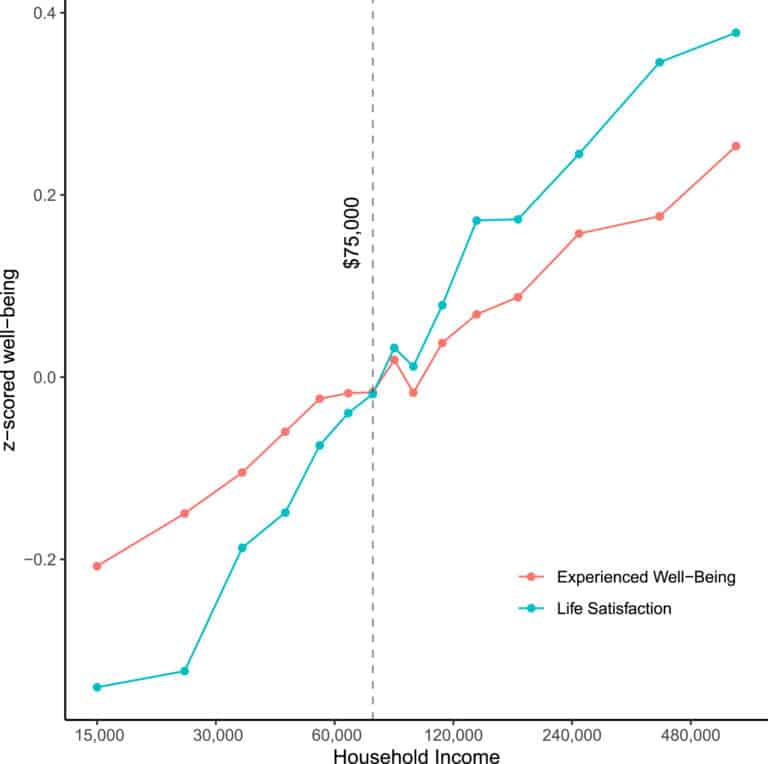Wealth is not about having a lot of Money; It’s about having a lot of options. – Chris Rock
Can Money buy happiness?
Like most things in life, it depends.
The original answer was no. The conclusion was verified in a famous paper by Nobel Laureate Dan Kahneman and economist Angus Deaton. When income exceeded $75,000, Money had little effect on emotional well-being.
Things changed in 2021 with a study by Matthew Killingsworth. Research determined that life satisfaction and emotional well-being increased beyond the $75,000 level reported in the Kahneman and Deaton study.

My colleague Nick Maggiuli managed to decipher the contrasts in findings between these two studies in his excellent post, Money Can’t Buy Happiness…Or Can it?
Nicks conclusions:
If you have a lower income, more income probably will make you happier.
If you have a high income and are unhappy, more income probably won’t make you happier.
If you have a high income and are already happy, more income probably isn’t worth the effort.
Nick’s analysis makes sense, but I would like to throw my take based on two recent unpleasant life experiences.
I’m fortunate to possess income and assets covering my daily needs and wants. IMHO, the critical purpose of Money is to make sucky things suck less.
Last month, my Mom passed away with the final two weeks spent in a hospital sixty miles from my home. Columbia Presbyterian is one of the finest hospitals in NYC. Unfortunately, getting there requires a journey along Fury Road.
NYC traffic, potholes, and road ragers litter the terrain. Rather than bake this unpleasant task into an already terrible situation, we decided to hire a driver for our trips to visit her. It wasn’t cheap, but not all value equates to dollar signs. Our driver was super funny and an excellent, skilled roadmaster. Dina and I could relax in the back seat while he did the heavy lifting with stress levels at the breaking point. This temporary solitude was welcome and helped make our last visits more meaningful since we didn’t arrive stressed out over the journey.
The same result applied to another situation that does not involve life and death.
Last week, our son caught a terrible stomach bug. He became very dehydrated, and we were thinking we had to take him to the emergency room for an infusion. Leaving at 10 PM to sit in an ER with a highly nauseous kid while being exposed to God knows what for several hours is nobody’s idea of a good time.
Suddenly, an idea popped into my brain.
Could a company make a house call and bring the I.V. to the comfort of our home? Sure enough, Dina found one, and thirty minutes later, the RN arrived and did her thing.
Again, the visit wasn’t cheap, measuring in dollars, not less misery.
Spike Milligan succinctly sums up the misery value of Money. Money can’t buy happiness, but it does bring a more pleasant form of misery.
Loss aversion wins again. We tend to feel worse when bad things happen than feel good during positive outcomes. The giddiness of a 30% market surge will never compensate for the anxiety created by a 30% market rout.
Certain conditions apply regarding Money increasing happiness. The same is not valid for its inverse.
I can vouch for Daniel Kahneman’s quote.
Money does not buy you happiness, but lack of Money certainly buys you misery.
The actual time value of Money is determined by when and why you spend it.





